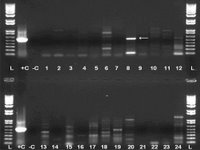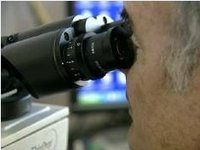Pap Smear Test guidelines changed: Fewer Pap Tests advised for women in 20's
Washington, D.C.
Failure to Diagnose Cervical Cancer Malpractice Lawyers - Misread Pap Smear Test
Most women in their 20s can have a Pap smear every two years instead of annually, say new guidelines that conclude that's enough to detect slow-growing cervical cancer.
The change by the American College of Obstetricians and Gynecologists comes amid a separate debate over when regular mammograms to detect breast cancer should begin. The timing of the Pap guidelines is coincidence, said ACOG, which began reviewing its recommendations in late 2007 and published the update today in the journal Obstetrics & Gynecology.
The guidelines also say:
— Routine Paps should start at age 21. Previously, ACOG had urged a first Pap either within three years of first sexual intercourse or at age 21.
— Women 30 and older should wait three years between Paps once they have had three consecutive clear tests. Other national guidelines have long recommended the three-year interval; ACOG had previously backed a two- to three-year wait.
— Women with HIV, other immune-weakening conditions or previous cervical abnormalities may need more frequent screening.
Paps can spot precancerous changes in the cervix in time to prevent invasive cancer, and widespread use has halved cervical cancer rates in the U.S. in recent decades. About 11,270 new cases will be diagnosed this year, and about 4,070 women will die from it, according to American Cancer Society estimates. Half of women diagnosed with cervical cancer have never had a Pap, and another 10 percent haven't had one in five years.
Cervical cancer is caused by certain strains of the extremely common sexually transmitted virus called HPV, for human papillomavirus. There is a new HPV vaccine that should cut cervical cancer in the future; ACOG's guidelines say for now vaccinated women should follow the same Pap guidelines as the unvaccinated.
But the updated guidelines reflect better understanding of HPV. Infection is high among sexually active teens and young adults. Women's bodies very often fight off an HPV infection on their own without lasting harm, although it can take a year or two. The younger the woman, the more likely that HPV is going to be transient.
Moreover, ACOG cited studies showing no increased risk of cancer developing in women in their 20s if they extended Pap screening from every year to every two years.
As for adolescents, ACOG said cervical cancer in teens is rare — one or two cases per million 15- to 19-year-olds — while HPV-caused cervical abnormalities usually go away on their own, and unnecessary treatment increases the girls' risk of premature labor years later.
Failure to Diagnose Cervical Cancer Malpractice Lawyers - Misread Pap Smear Test
Labels: Cervical Cancer Prevention, Cervical Cancer Research, Cervical Cancer Screening, HPV DNA Test, Pap Smear Test


